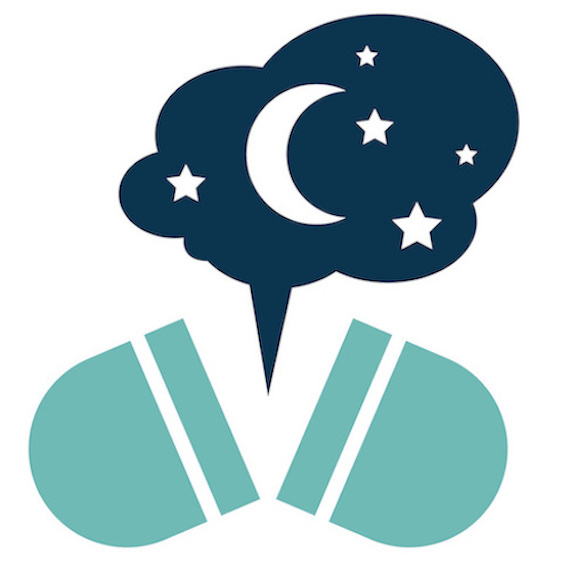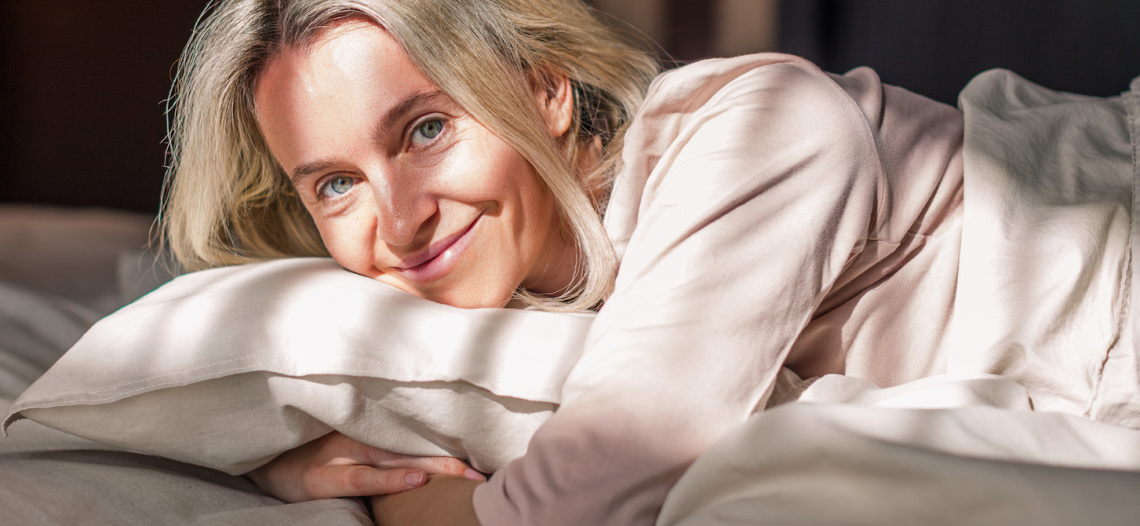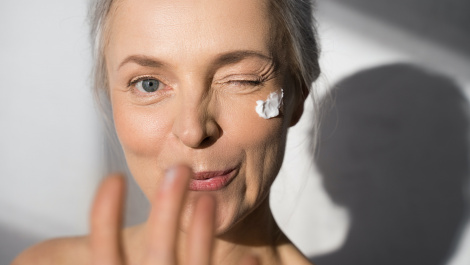What is melatonin? Why do we take it? Who should avoid it? And what if it doesn’t help us get a good night’s sleep? Let's explore some of the most popular questions about Melatonin - especially in midlife.
“I used to sleep like a baby, now I’m lucky if I get four hours’ shut eye a night,” says Sarah-Jane, 54. “ There is little worse than tossing and turning until 3am, knowing you have a busy day ahead of you. I’m trying absolutely everything and anything to ease my menopausal insomnia before I go crazy!”
As science shows, estrogen regulates your body temperature and has helps your body metabolise your feel-good chemicals. A dip in estrogen once you hit menopause not only affects the way your body your sleep-wake cycle, it means you’ll probably experience night sweats, lower quality sleep, and bad mood too. In desperation, many women will reach for sleep aids. Melatonin is one of them. Don’t be misled by the numerous myths out there.
Melatonin is a sleeping pill.
False. You can take a man-made version of melatonin for short-term sleep problems, but melatonin is actually a hormone produced by the pineal gland in your brain. It is only produced at night when it is dark, and acts as natural reminder to your brain that it is time to go to sleep. Any type of light, whether it’s from a TV screen, cell phone or electric bulbs, minimises the production of this sleep hormone. When your melatonin levels are low, your brain doesn’t know you should be getting some shut eye. Topping up your melatonin levels with a supplement is through to bring on the zzzzzzs.
Melatonin is not addictive.
True. Although sleeping pills can become additive, there are no studies that suggest you can become dependent on melatonin supplements. In fact, researchers have found that melatonin has no withdrawal symptoms and it is highly unlikely you will experience any adverse effects after you stop using it. However, scientists caution if you take too high a dose of melatonin for too long, your body might start relying on the manufactured hormone and stop making as much natural melatonin as it used to.
You don’t need a prescription.
False-ish. Although melatonin is widely available as an over-the-counter supplement in America and Canada, other countries require you to have a prescription from your healthcare professional.
Menopause can lead to sleep disturbances.
True. Sleep issues affecting up to 47 %of perimenopausal women and 60% of postmenopausal women. These include hot flashes, insomnia and sleep-disordered breathing.

It is 100% safe.
False. A 2019 review of 50 melatonin studies, researchers concluded that, “Oral melatonin supplementation in humans has a generally favourable safety profile, with some exceptions.”
Your doctor might advise you against taking melatonin if you have liver or kidney problems, have rheumatoid arthritis, multiple sclerosis or lupus. If you are on blood thinners, such as warfarin, your doctor might need to adjust your dose as taking melatonin might increase the chances of bruising and bleeding. Melatonin supplements can also cause some side effects such as headaches, dizziness, and nausea. Some melatonin users also report incredibly vivid dreams. The 2019 review added that most adverse effects be managed by dosing in accordance with your natural circadian rhythms.
It can help you get a good night’s rest.
True. A 2021 review of 24 studies on melatonin and women’s health showed that melatonin improves sleep quality in menopausal women who struggle with getting adequate sleep.
“In one study, 250 menopausal women with sleep impairment took 3mg melatonin at night for three months,” says UK-based women's health expert Dr Deborah Lee. After three months, women rated their hot flashes as less intense. “Improvements on the sleep polysomnogram (brain electrical activity test) showed improved sleep efficiency, a larger amount of REM sleep, and reduced night-time awakenings,” Dr Lee adds. Study participants also reported improved insomnia.” However, melatonin is unlikely to lead to better sleep unless other factors, such as following a good sleep hygiene regime and having a fixed routine, are in place.
It is only used for sleep enhancement
False. Melatonin doesn’t only make it easier for you to get your beauty, it can also improve bone health. A recent study showed that adding melatonin to medication used to treat osteoporosis resulted in substantial savings in annual health care costs, reducing the economic burden associated with bone disease.

You need to take it forever.
False. For most people, taking a melatonin supplement every night for less than a month is enough to stabilise their sleeping patterns.
Melatonin is also found in food.
True. Try incorporating melatonin-rich ingredients in your evening meal. Examples include eggs, fish, nuts, tomatoes, mushrooms, and strawberries.
If melatonin supplements don’t work there are other natural ways to improve your sleep.
True.
- Wear loose cotton pyjamas.
- Keep your bedroom cool and well-ventilated.
- Avoid spicy foods right before bed.
- Try to go to bed at the same time every night.
- Exercise regularly but not right before sleep.
- Dial back on the caffeine.
- Avoid naps during the day – they can prevent you from sleeping well at night.
- Ask your doctor about sleep medication.
- Make sure you empty your bladder before bed.
- Get natural sunlight within half an hour of waking and at sunset
Sleep is genuinely the holy grail of health, so finding your most effective sleep pattern is key. If you struggle with sleep, have a look at this collection on some of the ways to improve your sleep cycle and sleep hygiene.








Comments